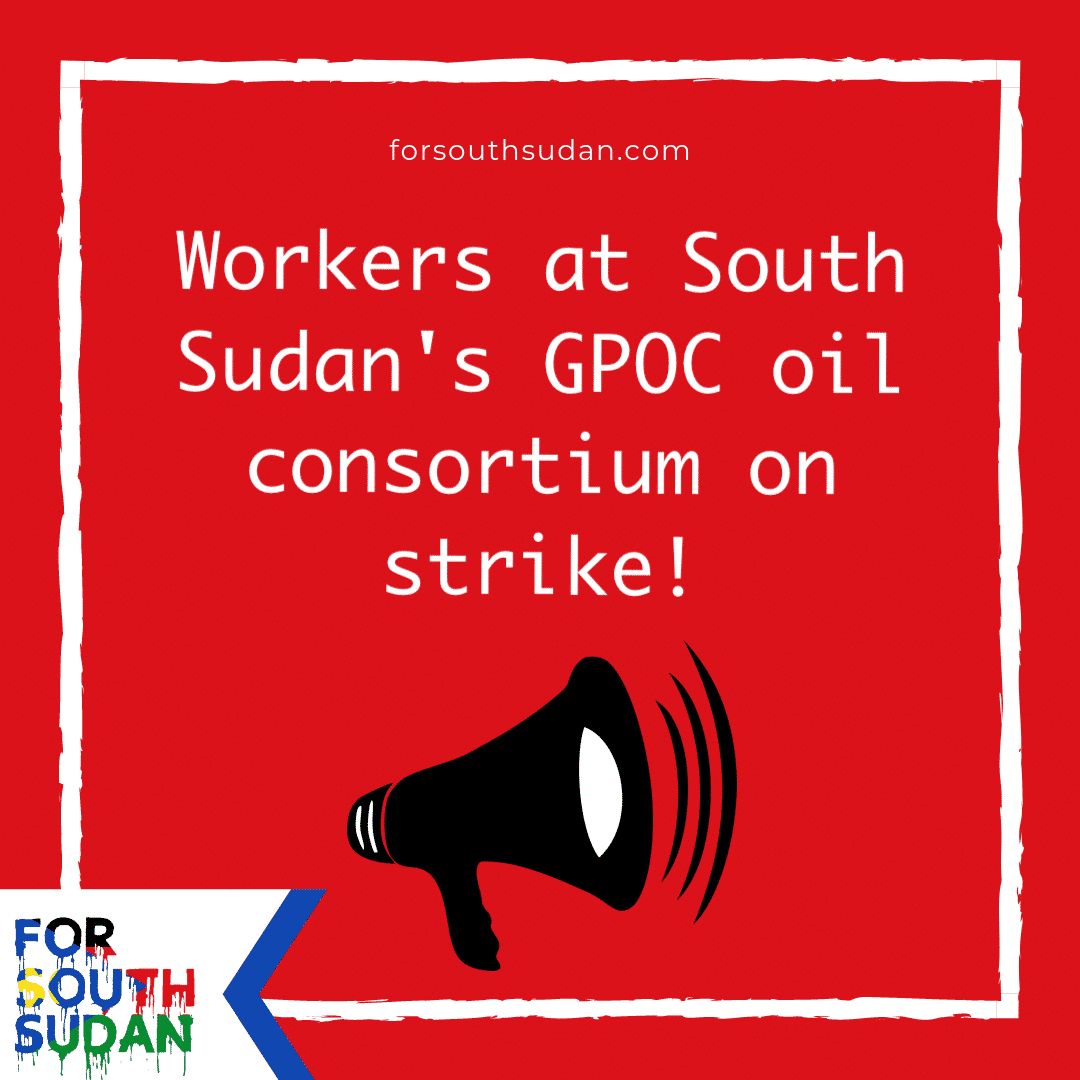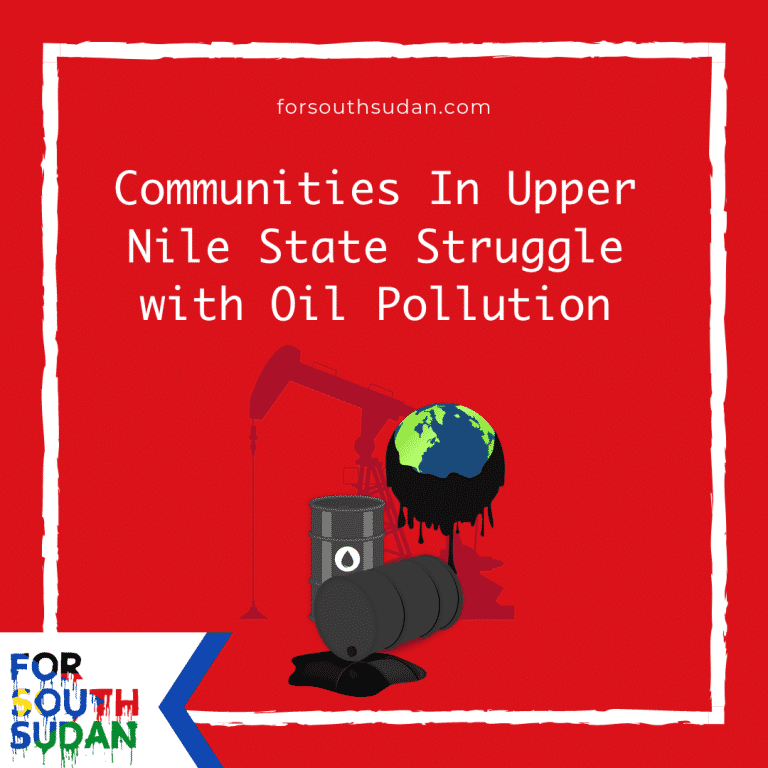For unpaid pay, safer working conditions – and reportedly for protection from liability for breaches of environmental regulations committed by GPOC
Local residents. National human rights experts. International environment organizations. And now its own staff.
The list of people and groups upset with South Sudan’s Greater Pioneer Operating Company (GPOC) keeps on growing.
Unchanging is one of the reasons why these people and groups have been so critical of GPOC: the practices engaged in by this oil consortium, which is reportedly the country’s largest in terms of output.
Including the spewing of toxic wastes into groundwater and on to farmland – and the issuing of pollutants-laid fumes into the air, these practices have been attributed to greater incidences of births of deformed babies, crop failures, and infertility.
No wonder that the people most directly exposed to these pollutants – the workers staffing GPOC’s facilities and pipelines – are now on strike.
The three-day strike is actually about GPOC’s failure to live up to the commitments it had made, which were
— to improve protection of staff health, and to provide medical care – especially important in this time of Corona crisis
— to supply life insurance – also of vital importance in view of the number of Corona-caused fatalities in South Sudan skyrockets
— “fair” working conditions.
What “fair” refers to: GPOC’s track record of failing to adequately perform maintenance on its facilities and pipelines has caused the incidence of an ever-greater number of oil spills and leaks – and facility fires. These in turn have – quite understandably – generated several major lawsuits.
Lodged by the people living in oil fields and their representatives, these suits demand the payment of indemnification by GPOC.
Consortium staff are reportedly afraid of also being made liable for these misdeeds, which have become the object of international horror and concern.



